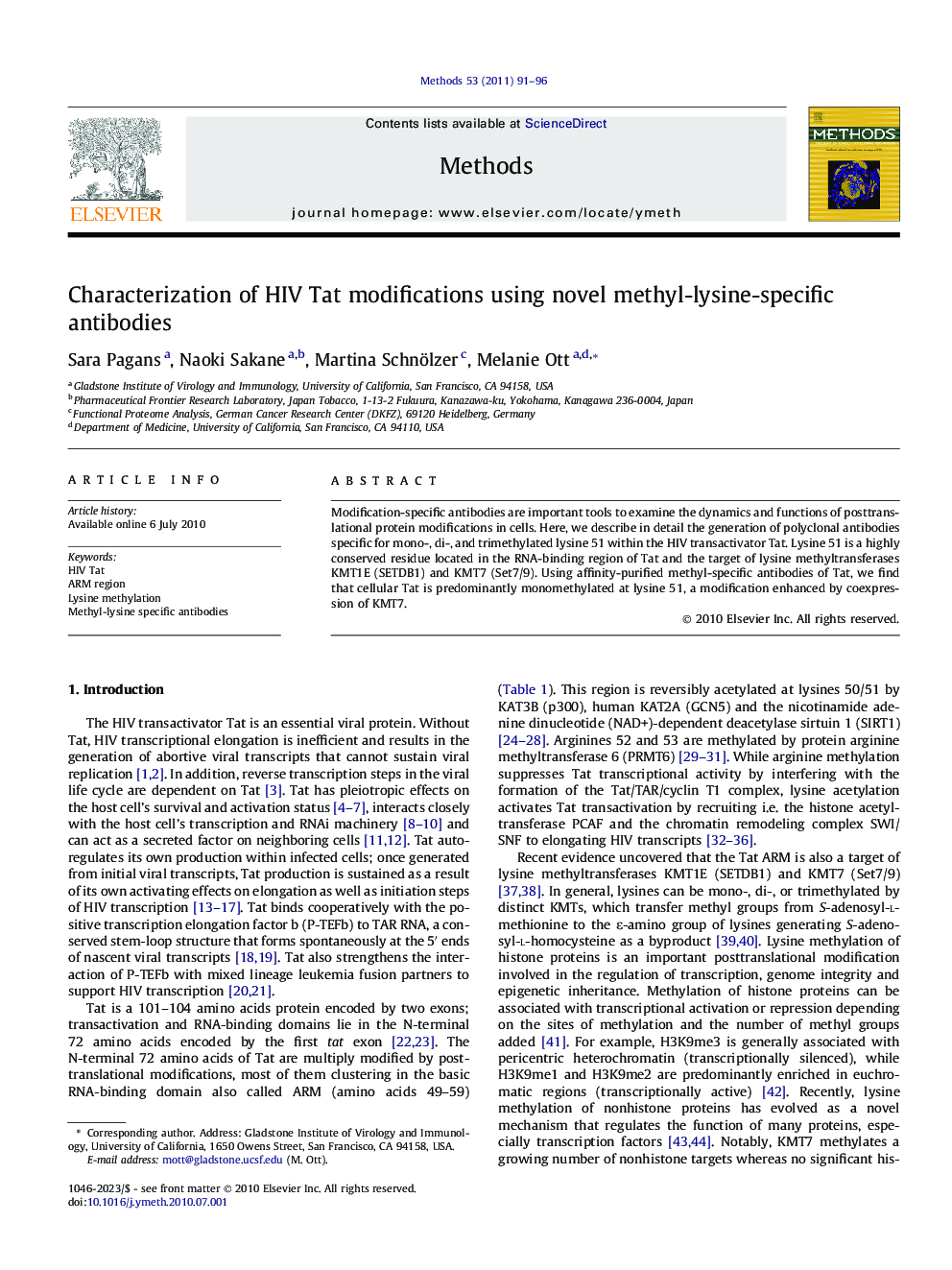| Article ID | Journal | Published Year | Pages | File Type |
|---|---|---|---|---|
| 1993897 | Methods | 2011 | 6 Pages |
Abstract
Modification-specific antibodies are important tools to examine the dynamics and functions of posttranslational protein modifications in cells. Here, we describe in detail the generation of polyclonal antibodies specific for mono-, di-, and trimethylated lysine 51 within the HIV transactivator Tat. Lysine 51 is a highly conserved residue located in the RNA-binding region of Tat and the target of lysine methyltransferases KMT1E (SETDB1) and KMT7 (Set7/9). Using affinity-purified methyl-specific antibodies of Tat, we find that cellular Tat is predominantly monomethylated at lysine 51, a modification enhanced by coexpression of KMT7.
Keywords
Related Topics
Life Sciences
Biochemistry, Genetics and Molecular Biology
Biochemistry
Authors
Sara Pagans, Naoki Sakane, Martina Schnölzer, Melanie Ott,
